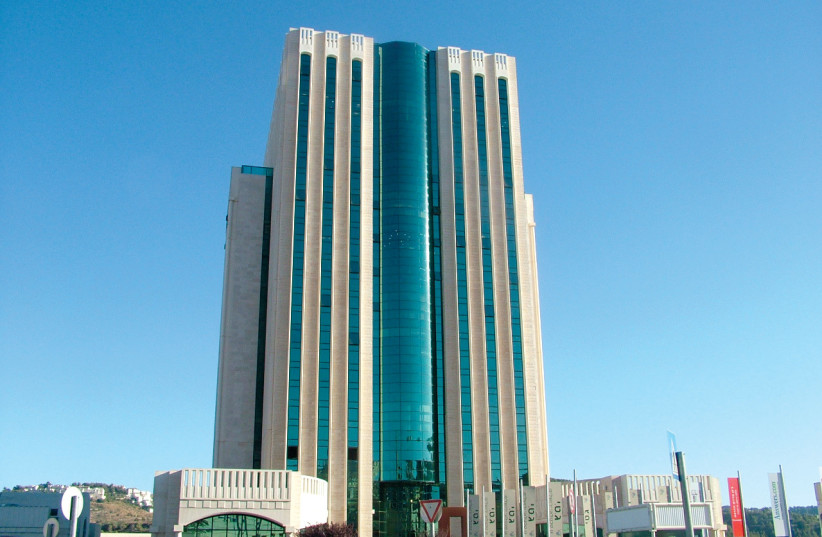The nation’s capital saw a dramatic surge in its hi-tech industry over the past year. In honor of Jerusalem Day this year, the nonprofit organization Made in JLM (Made in Jerusalem), which oversees the start-up and hi-tech ecosystem in Jerusalem, released its annual tech report, highlighting some of the changes.
In particular, the city saw a massive increase in the amount of investment capital that went into its nearly 600 start-ups, with 300 of them raising a combined $1 billion last year alone. Over the last five years, that number is a total of close to $4b., which is a five-time growth over the previous five-year period.
2022 also saw well-known Jerusalem companies like Mobileye and Freightos going public in the US markets, the former being the largest Israeli IPO in US stock market history. What’s more, Mobileye has continued to see growth in its valuation.
What is the state of the hi-tech industry in Jerusalem?
Despite this, there was not a big change in the number of start-ups and employees, which the report says is leading to high demand for jobs and opportunities for Israelis who are eager to remain in Jerusalem. According to the data Made in JLM compiled from the Jerusalem Institute, there are approximately 20,800 hi-tech workers in the city, with more than 750 job openings. This gap between job openings and those seeking employment leads many to leave the city for places like Tel Aviv.
The report noted that in order to close this gap, larger companies must begin to establish themselves in the city. In the previous year, multinational tech company Apple opened an office in Jerusalem in the Malha area; and Google, Amazon and Microsoft have announced plans to do so as part of their role in moving the government’s data to the cloud.

Made in JLM’s report also spoke of the construction boom in the city, which anyone who lives here or has visited may have noticed in regard to the large number of cranes on the horizon. In 2022, the municipality added Road 16, which extends to the southern part of the city, creating a link between Talpiot, Malha and Givat Ram, where the Hebrew University has its hi-tech campus. This is alongside the continued development of the Midtown Gateway project near the International Convention Center, which will be a hub for tech in the country. The city also announced plans to open new train stations in various parts of Jerusalem to better connect the capital to the rest of the country.
Integration of minority groups also saw growth in Jerusalem in 2022. This occurred mainly in the haredi community, particularly among haredi women. Despite the negative press, the three most successful ventures in the city – and Israel in general – in 2022 were by haredi entrepreneurs, with hundreds of men and women from that sector employed in their companies. The report also stated that work needs to be done to better integrate the Arab sector into tech.
An astonishing point of the report is what is listed as “the city’s most significant gap” in junior job opportunities. It says that there is currently a supply-to-demand ratio of 30:15,000, meaning that “for every job opening, there are an average of 300 to 500 resumes received, and only one candidate is hired.” The silver lining, as the report suggests, is that “this presents a unique opportunity for large multinational companies eager to hire talented young employees.”
Made in JLM’s tech report also compared Jerusalem to other cities, primarily Haifa. A graph shows that Jerusalem has more hi-tech companies, but Haifa has more people working. This is largely due to the number of multinational corporations with offices in Haifa that have thousands of employees. Made in JLM suggests that Jerusalem can close this gap by offering “incentives, improved office supply, and better transportation access.”
The report concludes with an optimistic outlook, pointing to the recent ranking of Jerusalem as a top location in the world for millionaires to live; improved relations thanks to the Abraham Accords; new opportunities in AI; and a willingness of venture capital to go toward early-stage companies, of which Jerusalem has many.
Also, two of Israel’s premier universities – Hebrew University and Bezalel Academy of Arts and Design – are in the city. This lends a hand to Jerusalem’s reputation as a cultural center.
For its part, Made in JLM plays an integral role in the city’s growth, thanks in part to the support of the Jerusalem Development Authority. The organization hosts events every month that draw Jerusalemites from all sectors to gather and network, thus building a strong community in the city.
In all, despite not having the reputation that Tel Aviv has in regard to hi-tech, Jerusalem continues to position itself as a serious player in the technology sphere, not just in Israel but globally. ■
The writer, a Jerusalem Post staff member, is an entrepreneur and Hebrew thinker, known as Osher in Hebrew. A recent immigrant, he also helps oversee the start-up ecosystem in Jerusalem with Made in JLM. On Twitter: @troyfritzhand.
